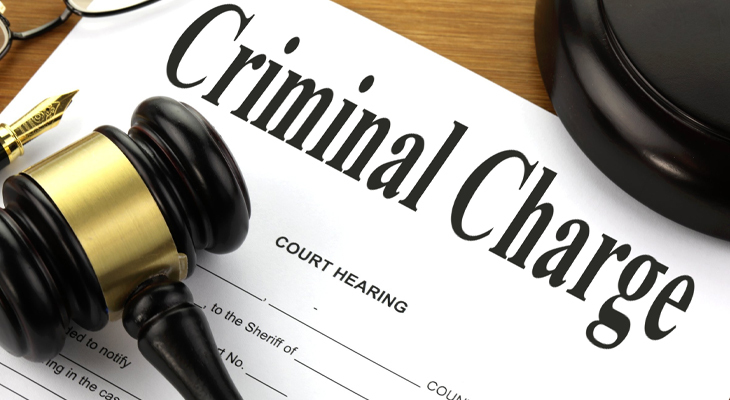Wrongful Death vs. Criminal Charges: Understanding the Legal Distinctions

The legal system can be extremely complex, and different charges have different consequences. For example, most of us who aren’t lawyers would assume that a wrongful death case is the same thing as a criminal charge, but they are actually two distinct situations with different legal processes. At a high level, wrongful death claims typically fall under civil law; they involve seeking compensation for an injury or loss that is the result of someone else’s negligence or intentional actions. On the other hand, criminal charges are pursued by state or federal government; they are designed to punish people for violating criminal laws. Let’s delve a little deeper into the key differences between wrongful death cases and criminal charges.
Wrongful Death Cases
As its name suggests, wrongful death cases involve a person dying due to the negligence or misconduct of another party. In these civil cases, the plaintiff is usually the surviving family (or the estate) of the person who has died; the goal of the suit is to seek compensation for the losses that the deceased’s loved ones have suffered. This compensation is meant to cover medical expenses, funeral costs and lost income, as well as the emotional distress that family members have suffered because of their loved one’s death.
The defendant in wrongful death cases may be a person, a group of people or even a company or some other entity. The legal basis for wrongful death claims varies by jurisdiction but generally includes negligence, intentional misconduct or strict liability (a term which means holding a person or company responsible for injury, regardless of whether or not they took adequate precautions to prevent it). In the state of Maryland, these cases are governed by the Maryland Wrongful Death Act.
Negligence is probably the most common complaint in wrongful death claims. In order to establish negligence, the plaintiff needs to demonstrate that the defendant had a duty of care toward the person who has died, and that they breached that duty through action (or lack thereof), directly causing the death. To prove negligence, the plaintiffs must gather evidence; these cases often involve expert testimony to establish the standard of care (and how the defendant failed to provide it).
Criminal Charges
In contrast to wrongful death cases, criminal charges are filed by the state or the federal government, and the plaintiff is usually a state or federal prosecutor. Another big difference: the burden of truth is higher in a criminal case than in a wrongful death case. In criminal cases, the government must prove that the defendant is guilty beyond a reasonable doubt, whereas wrongful death cases require a preponderance of evidence, which means that it just needs to be more likely than not that the facts the plaintiff is presenting are true.
Criminal charges can include murder, manslaughter or criminally negligent homicide (causing someone’s death by extreme negligence or recklessness). The specific charge depends on the circumstances surrounding the person’s death, as well as the intent or state of mind of the defendant (did they plan the crime or was it an accident? Could they have avoided it by being less reckless?)
One thing to note is that criminal charges can be filed even if the victim’s loved ones don’t choose to file a wrongful death claim. In criminal cases, the government acts on what they consider to be society’s best interest, seeking justice on behalf of citizens as a whole. Civil cases are focused solely on compensating the specific individuals who have been affected by a wrongful death.
Outcomes and Consequences
There are some significant differences between the outcomes of wrongful death cases and criminal cases. If a wrongful death case is successful, the court may award compensation to the plaintiffs; this payment is intended to cover the financial and emotional losses that they have suffered as a result of their loved one’s death.
In criminal cases, if the defendant is found guilty, the court may sentence them to criminal penalties ranging from fines and probation to prison time (or a combination of all of these). The goal in imposing these penalties is to punish the defendant for violating criminal laws, as well as to set an example that deters others from committing the same crimes. In other words, criminal cases are more focused on punishment, while civil wrongful death cases focus on compensation.
Bear in mind that a defendant can face both criminal charges and a wrongful death lawsuit at the same time. The outcomes of these cases are independent of each other. For example, a person might be acquitted of criminal charges but found liable in a wrongful death case (or vice versa). The courts that process these two types of cases have their own objectives, as well as their own methods for determining guilt.
That being said, a criminal conviction can sometimes influence the outcome of a subsequent wrongful death case. For example, if a person is found guilty in a criminal trial, that result could be used as evidence in the civil case to support the plaintiff’s claims that the defendant is liable. Then again, being found not guilty in a criminal trial doesn’t necessarily mean that a wrongful death trial won’t be successful.
The death of a loved one due to someone else’s neglect or recklessness is a tragedy, and bereaved families often wish to seek compensation for their loss and suffering. Before beginning the process, it’s important for those filing a suit to understand the difference between a civil wrongful death suit and a criminal case; a qualified attorney with experience in the legal nuances of both types of cases can help explain the differences and ensure a more successful outcome.
If your loved one has died as a result of someone’s negligence or recklessness and you believe that you have a wrongful death claim, contact the Law Offices of Nicholas Parr in Baltimore, MD today to schedule your free consultation. We don’t receive a fee unless we win.


